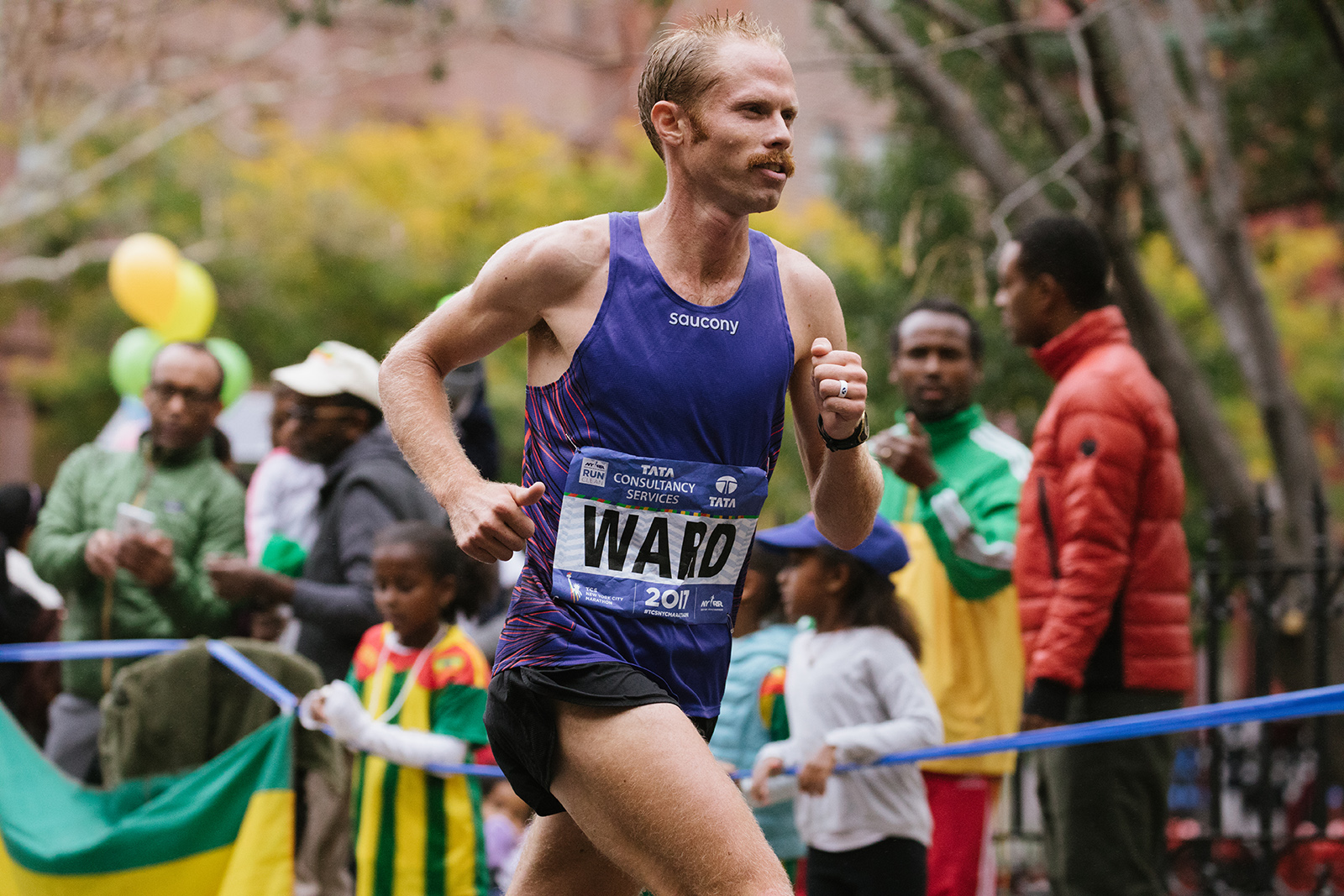Following a Fantastic Race in Boston, Jared Ward Is Targeting a Podium Place in New York City

As the 2019 spring marathon season came to a close, U.S. pro runners had a difficult decision to make. With the Olympic Marathon Trials scheduled for February 29, 2020, in Atlanta, the decision to race a marathon in the fall or sit it out wasn’t as straightforward as many people made it out to be.
As top-tier athletes and coaches mulled over decisions and strategies, experts and casual runners opined on what was a hot topic in U.S. long-distance running. To race or not to race? That was the question.
Following an eighth-place finish at the 2019 Boston Marathon in a time of 2:09:25, Jared Ward knew his answer. He entered the office of his coach, Ed Eyestone, and laid out his plans for fall 2019.
“I told him that I was excited to race,” said Ward. “He said: ‘If you’re excited to race, then let’s race.’”
Following that conversation, Ward set his sights on one of his favorite races, the TCS New York City Marathon on November 3.
“The thought of not running a fall marathon was a little disheartening. I’ve realized that you go through periods of great fitness and good health and then other times where your fitness just isn't where you want it to be,” said Ward.
“After the Rio Olympics [where Ward finished in sixth place], 2017 and 2018 were rough years with injuries. I've been healthy and fit in the last year, so I’m aiming to take advantage of that. I’m running well right now, so I want to race.”

When selecting a fall marathon, Ward targeted New York City as he believes the tough course will prepare him for Atlanta’s rolling hills come February, where Ward will look to qualify for his second Olympic Games.
But if you think Ward will arrive in New York distracted, with one eye on Atlanta, you would be mistaken. The Mapleton, UT, native has one goal on his mind come November and that’s a place on the podium.
“It has been a longtime goal to finish on the podium of an Abbott World Marathon Majors race and New York presents an opportunity for that this year,” said Ward.
“There is a quality field, so it's going to take a great race, but that's what racing is about,” he explained.

Given the tactical nature of the course—especially its difficult second half—Ward believes his calculated approach, combined with a re-energized outlook to racing following the Boston Marathon, can help land him a podium spot. “It’s a good opportunity for me to chase that dream.”
In Boston, Ward broke the 2:10 barrier, a result that has changed his mindset when it comes to toeing the line at major marathons. In 2017, Geoffrey Kamworor won the TCS New York City Marathon in 2:10:53. In 2015 and 2014, the winning times were 2:10:34 (Stanley Biwott) and 2:10:59 (Wilson Kipsang) respectively.
“I don’t know yet if I can go and run 2:06 in New York [Lelisa Desisa won last year’s race in a time of 2:05:59], but in some years, the race has been won in 2:10 and 2:11,” he said.
“When you hear Des [Linden] or Meb [Keflezighi] talk about their approach to marathoning, they go and put themselves in the mix year after year. Some years, it’s crazy fast and the field of athletes just competes behind the leader. But if you put yourself out there enough times, you see some of these success stories. My approach is to be as fit as I can and put myself in the mix. And if the podium is locked up in 2:06 this year, then I’ll race my best to come in behind that. But if the winner is around 2:08 or onward, then I hope to compete.”

Racing from Hopkinton to Boylston Street at the 2019 Boston Marathon has not only given Ward a newfound confidence, it has also reinforced his self-belief. At the halfway point, he led the race, a second ahead of the pack. Finishing eighth, the self-confessed “patient runner” Ward learned a lot that day about leading, pacing, and knowing what he can do at major marathons.
“I felt good in Boston. Early on, I thought this could be the 2:09 day and that was what prompted the move to take the lead and and keep the pace going. I did not want to throw away an opportunity to run under 2:10 by running a handful of slow miles. And it was fun to lead for a bit in Boston,” he said.
“I’ve always been patient in my approach to racing. I've been on the start line thinking this is the pace I'm prepared to run today and let’s see where I finish. It's just been about getting to the finish line as fast as I can and not worrying about anybody else. But after that experience in Boston, it has changed my approach. I'm going into New York with a racing mentality and feeling that I'm a contender.”




